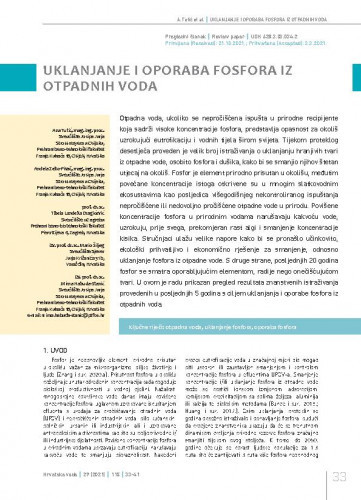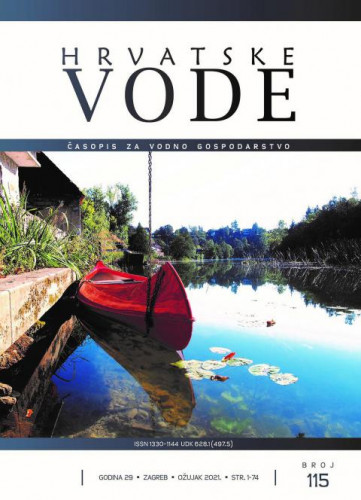Otpadna voda ukoliko se nepročišćena ispušta u prirodne recipijente koja sadrži visoke koncentracije fosfora predstavlja opasnost za okoliš uzrokujući eutrofikaciju i vodnih tijela širom svijeta. Tijekom proteklog desetljeća proveden je velik broj istraživanja o uklanjanju hranjivih tvari iz otpadne vode, osobito fosfora i dušika, kako bi se smanjio njihov štetan utjecaj na okoliš. Fosfor je element prirodno prisutan u okolišu, međutim povećane koncentracije istoga otkrivene su u mnogim slatkovodnim ekosustavima kao posljedica višegodišnjeg nekontroliranog ispuštanja nepročišćene ili nedovoljno pročišćene otpadne vode u prirodu. Povišene koncentracije fosfora u prirodnim vodama narušavaju kakvoću vode uzrokuju prije svega prekomjeran rast algi i smanjenje koncentracije kisika. Stručnjaci ulažu velike napore kako bi se pronašlo učinkovito, ekološki prihvatljivo i ekonomično rješenje za smanjenje, odnosno uklanjanje fosfora iz otpadne vode. S druge strane, posljednjih 20 godina fosfor se smatra oporabljujućim elementom, radije nego onečišćujućom tvari. U ovom radu prikazan je pregled rezultata znanstvenih istraživanja provedenih u posljednjih 5 godina s ciljem uklanjanja i oporabe fosfora iz otpadnih voda.. If untreated wastewater containing high concentrations of phosphorus is discharged into a natural recipient, it poses an environmental threat, causing eutrophication of water bodies all over the world. In the past century, numerous investigations in nutrient removal from wastewater, particularly phosphorus and nitrogen, were conducted in order to reduce their adverse impact on the environment. Phosphorus is an element that is naturally present in the environment; however, its increased concentrations have been detected in many freshwater ecosystems as a consequence of many years of uncontrolled untreated or insufficiently treated wastewater discharges into the nature. Increased phosphorus concentrations in natural waters impair water quality by causing primarily excessive algae growth and reduced oxygen concentrations. Experts are making great efforts to find an efficient, ecologically acceptable and feasible solution to its reduction, i.e. removal of phosphorus from wastewater. On the other hand, rather than being considered a pollutant, phosphorus has been considered a recyclable element in the past 20 years. This paper presents an overview of the results of scientific research conducted in the past 5 years within the aim of removing and recycling phosphorus from the environment.
Sažetak
Dio sveska

